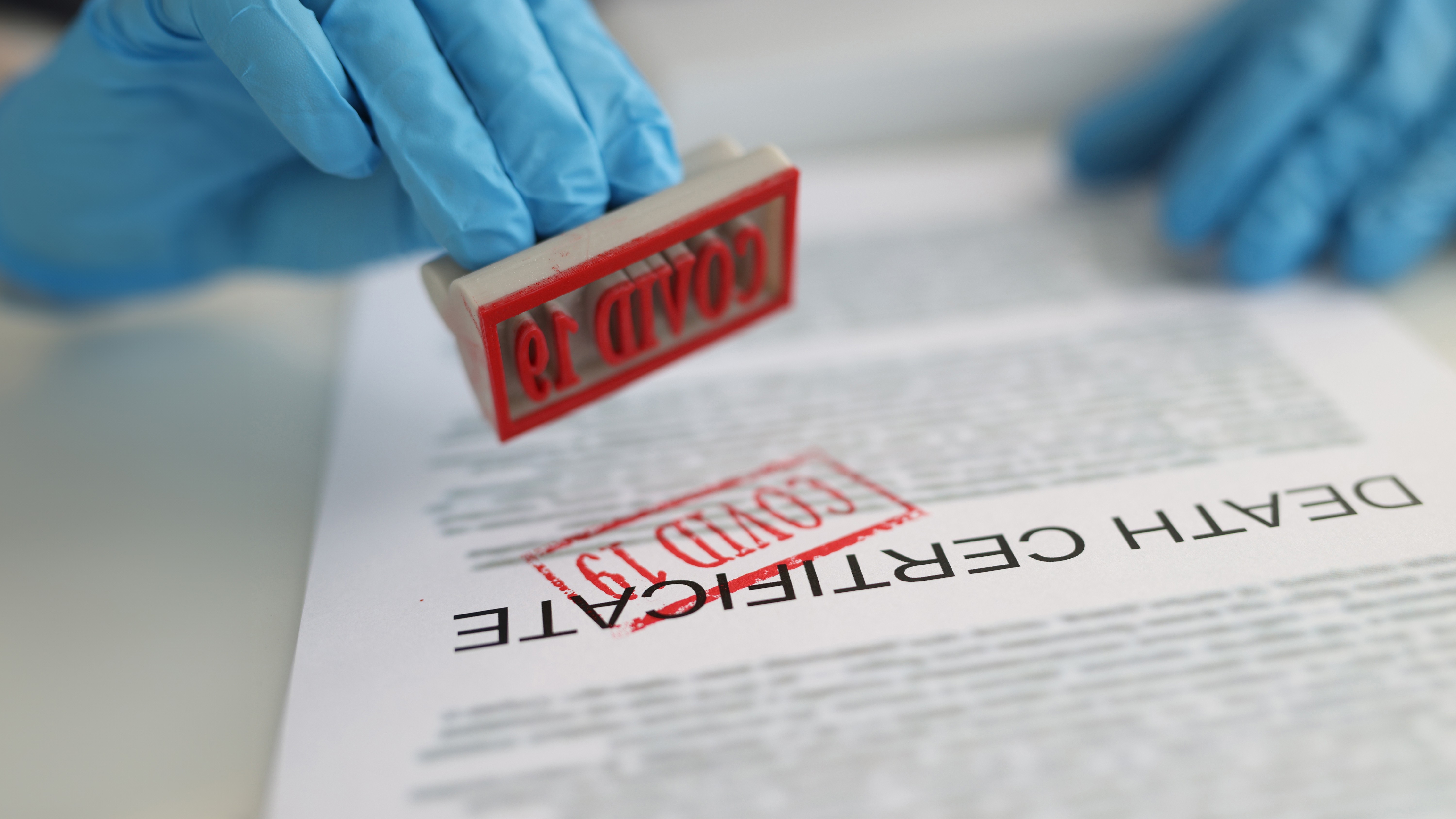
By Christina VandePol
In April 2020, nursing homes, hospitals, and funeral homes in the county where I was coroner were struggling: what to do with the bodies of COVID-19 victims? I was in panic mode myself: my county had refused for decades to provide the coroner’s office with a morgue, settling for the odd free space in local hospital morgues.
Now those hospital morgues were full and speedy cremations were essential. Cremation required a death certificate and a permit. And I was the one completing most of the county’s death certificates in April 2020. It didn’t seem like much compared to the heroic work of the exhausted doctors and nurses I spoke to every day, but it had to be done.
Galvanized by the sight of bodies piled into refrigerated trucks elsewhere, I spent bleary-eyed hours logged into the Electronic Death Reporting System, swimming against the COVID-19 rip current. As I certified each death, I wondered about the faces and stories behind the names. Allen’s nine decades of life ended two days after he was hospitalized with COVID-19. Did he leave behind generations of mourners or was he the last of his line? Ralph had survived the Vietnam War and cancer only to succumb to the virus. Had he been at the Unattended Veterans’ memorial service with me last fall? The digital death march went on and on all month.
As a courtesy, I’d call the next of kin after I signed a death certificate. I wonder if the memory of my conversation with Alice remains as vivid for her as it does for me.
“Hello, Alice, I’m calling to let you know your father’s death certificate is available.”
“But what did he die of?” Alice asked. “I have to know!”
Why doesn’t she already know? Didn’t the doctor or someone at the nursing home talk to her?
“He died of COVID-19 pneumonia,” I said slowly. “I’m so sorry.”
Alice burst into tears. Then, her voice shaking, she said, “Thank you, thank you, for telling me. It was so awful; he was alone and I couldn’t be there. They told me they didn’t need to test him when he got sick because his hospice aide was already positive.”
I’d heard this before. The shortage of swab tests and laboratories to run those tests meant diagnoses like “presumed COVID-19” were being used as shortcuts in under-resourced nursing homes. But I had long since learned that families of the dead wanted certainty, not assumptions; science, not circumstantial evidence.
Outraged, Alice had insisted the nursing home do a SARS-CoV-2 test on her father. He died soon after the test and no one bothered to inform Alice of the result—until my call. To her, my words were the guilty verdict against her father’s murderer.
I treasured the last moments I’d had with my own father when he died years earlier. The pandemic and the nursing home lockdown robbed Alice of that. My phone call told her she had done something for her father after all—given a name to his faceless killer. Maybe it wasn’t much, but today it was enough—for both of us.